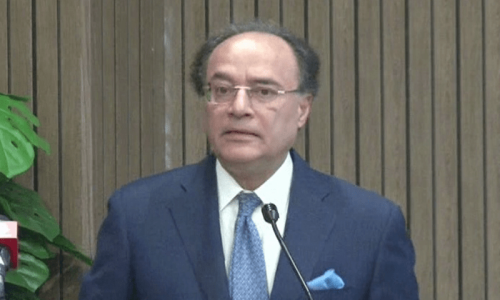
I didn’t know Cowasjee personally and only met him a couple of times. He had the kind of personality that stays with you for years. My meeting with him was truly unforgettable and I know I’ll always remember him fondly. I say this with confidence because just now, as I told my mother that Cowasjee was with us no more, she said “how sad” and then we both laughed.
We laughed because he had made us laugh when we met him and it is something we’ve spoken about for years. It’s been over a decade but the memories remain. When I was an International Baccalaureate student studying world religion as a subject, I became fascinated with Zoroastrianism and decided to do my summer project on the Parsis and their faith. And like all young, enthusiastic students who feel like their eyes have been opened for the first time, I was an eager researcher who wanted to know as much as I could possibly could. I stayed in Karachi for a while that summer so that I could learn and research. That’s when I bumped into Cowasjee.
He was walking around the lawns of the Governor’s House in a sleeveless, white kaftan surrounded by high society at a showing of the movie Jinnah. Amused and fascinated, I approached him about my project and asked if he could help. He said he would be happy to and set up a meeting at his residence.
The next day, after ringing the bell and while waiting for someone to open the door to Cowasjee’s house, my mother and I heard a squeaky voice yelling “Where’s your keys? Where’s your keys?” Confused, we looked around wondering if we’d dropped our keys. I even turned around to see if a child was playing a joke. But like a tape stuck on repeat, the squeaky demand refused to stop. When the door opened, we finally discovered the cheeky cockatoo perched on the bird cage behind us. It was just the start of a very amusing evening.
The person who opened the door escorted me up to Cowasjee’s study where he sat in tiny boxer shorts the wrong way around on his chair. A very excitable, little dog was bouncing around us the whole time.
“Saala calm down!” Cowasjee demanded and the little dog sat still for a while.
It was hard not be distracted by an elderly man in boxer shorts, sitting the wrong way around in a chair but because Cowasjee was unapologetic about who he was, I quickly adapted and we started to have a serious conversation about the Parsi community and their faith. He explained to me how and why Zoroastrianism was the oldest monotheistic faith. He gave me reading material and a book I have with me right now as I write this. He explained the entire history of the faith from its Proto-Indo-Iranian origins to the founding of the religion by Zarathustra to the way it was practised in today’s world. We discussed the major texts and prayers. I questioned him on the rituals I found confusing and he explained them all to me patiently. I couldn’t understand, for example, why someone would voluntarily want their flesh to be consumed by scavengers until he connected it to the Zoroastrian concept of charity. Every Parsi should aim to be as charitable as possible and giving up one’s own body to animals to consume, which is worthless after death, is an ultimate form of charity. I still remember that moment because it was a moment of clarity. A concept I found so confusing suddenly made complete sense.
The highlight of that interview was when I asked him to explain another concept I found troubling and hard to understand: why didn’t Zoroastrians marry anyone outside their own community? Why couldn’t someone become a Parsi? Why this obsession with racial purity? I couldn’t, at that point, understand why the two had to even be connected, especially since the Parsi population is very low. They are dying out and I pointed out that to lose such a faith would be too big a loss for humanity. Surely, they could adapt just to survive? His answer left me stunned.
“Listen, if you have an Alsatian, would you breed it with a mongrel?” I watched as his excited dog starting jumping around again, as I absorbed his hilariously blunt comparison.
“I, erm, sir, I don’t know,” was all I could manage to muster.
“Well you shouldn’t,” he said. “And if the saala Alsatian has no one to mate with and has to die, you let it die.”
And that was that. A concept so confusing, so troubling, was so easily explained and then dismissed with an analogy that I couldn’t help but giggle at. That’s when I realised I had been asking questions because I was viewing his faith through the lens of mine. Cowasjee taught me to discard any preconceived notions and see it for what it is.
In the Parsi faith, death turns every soul timid and fearful. It is evil’s temporary triumph. It is not decided by God, but instead is the mischief of the evil spirit, Ahriman. Based on his last piece, I doubt Cowasjee was fearful at all. I can imagine him staring death in the face, defiant, unafraid. He had quoted Churchill: “I am ready to meet my Maker. Whether my Maker is prepared for the ordeal of meeting me is another matter.”
May the maker enjoy your company as much as we did, Sir.
Nabiha Meher Shaikh is a writer, a feminist and an unapologetic eccentric who blogs at I am woman, hear me roar.
The views expressed by this blogger and in the following reader comments do not necessarily reflect the views and policies of the Dawn Media Group.












































